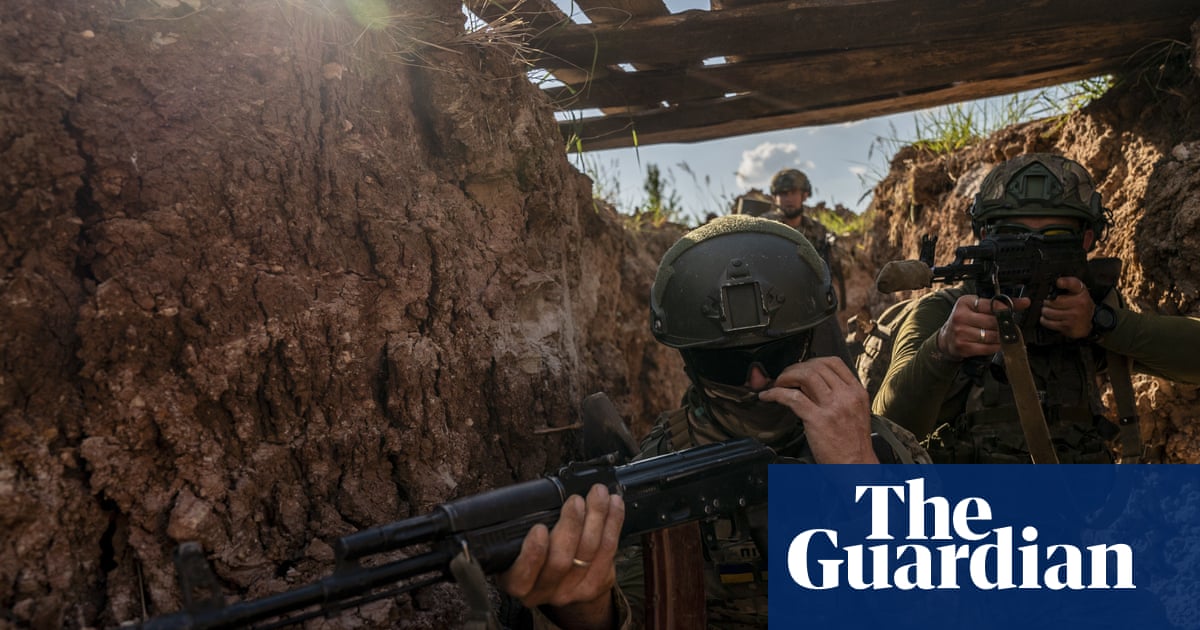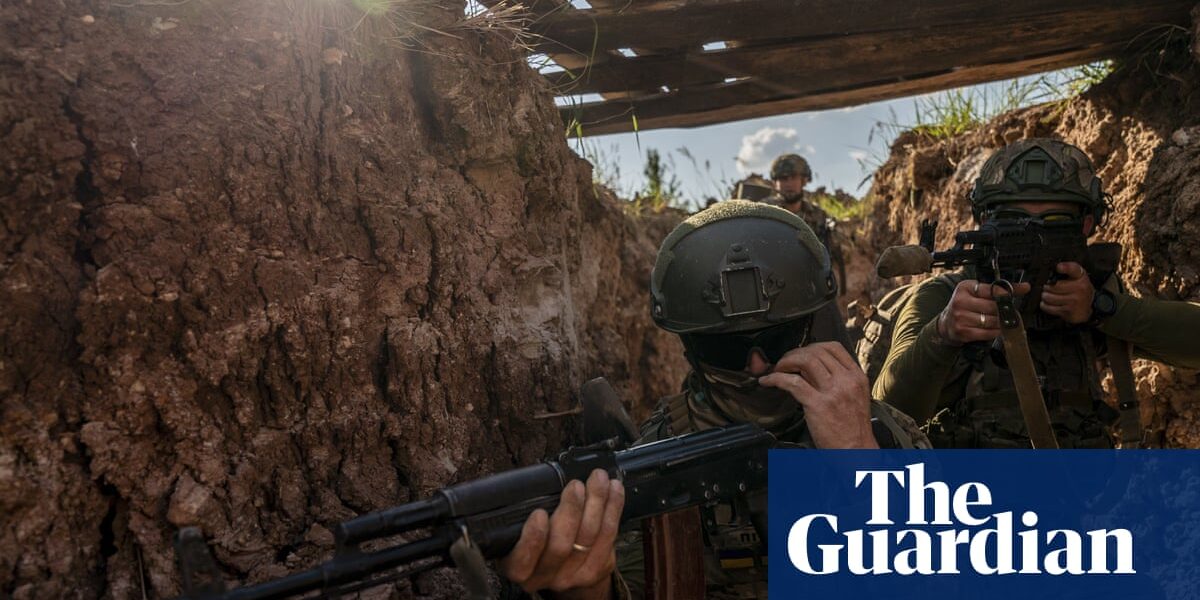The Language of War by Oleksandr Mykhed review – ‘Eat, kill, grief, repeat’ reflections from Ukraine

Oleksandr Mykhed and his wife Olena lost their home when the Russians invaded Ukraine. Before February 2022 he had never held a gun in his hands. But a week before the invasion, fearing the worst, he trained with a Kalashnikov assault rifle. And after helping to make a bomb shelter out of a university library in Chernivtsi, he enlisted in the armed forces of Ukraine.
His book, much of it written during his 100 days in the barracks, is less a record of armed service than a reflection on the impact of war – how it has changed him and others, too, not least children. It’s a ferociously angry book, borne of “rage, love for homeland, revenge”. Where his compatriot Andrey Kurkov’s reports from Ukraine are nuanced and sometimes comic, Mykhed’s are bitter and indignant. “This is a book about things one can never forget. Or forgive,” he says, recalling the free and happy life he enjoyed before the Russian army and “a gigantic net of saboteurs” destroyed it.
“We are not anti-Russia,” he claims, but you wouldn’t know it: “All Russians must realise: this war is also theirs.” Even Russian culture, “an integral part of a repressive imperial machine”, is tainted: till the war is over, he warns, no Russian artists, novelists or film-makers will have a voice in Ukraine. Even those who distance themselves from Putin’s “manic empire” are complicit (“I cannot help blaming all Russians”). Would-be peace-making or compromise-minded westerners are tainted, too. (“They do not seem to understand that for us Russia is a cannibal”). As for the Russian army – “a wild horde” of terrorists and rapists – he documents their war crimes in great detail. “The lesson of this war: always prepare for the worst, but still expect the Russians to do even worse.”
As its title suggests, his book is as much about the idiom of war as its conduct. Where Russians “use language as a camouflage net”, passing off bombs and mass killing as an innocuous-sounding SMO (“special military operation”), Ukrainians, as the victims, struggle to find words. A lament for the dead or a curse for the enemy is as much as they can manage. Or a “loop” of words to get them through the daily horror: “Eat, kill, grief, repeat.” Communication is reduced to military passwords. In war even literature loses the power to console: “I don’t believe in the possibility of escaping into a fictional world when the reality of your very life is ablaze.”. All a writer like Mykhed can do is testify, so the enemy’s misdeeds won’t be ignored. “The more of us they kill, the more of us will bear witness to their evil.”
Mykhed is conscious that his fervour may strike outsiders as extreme. But fervour is unavoidable; pride, panic, patriotism and mourning are integral to the story: “It is impossible to take a breather from this grief.”. Its jagged and circuitous structure reflects a man at the end of his tether: “I’ve never thought of self-harming before. Till now.” He has never been one to cry, either, but can’t hide his wounds. It’s as if his original self has been killed, he says, and a fourth or fifth self has taken its place. The book is an emotional convulsion as well as a chronicle. He lives out of a grab bag, forever on the move, as if in “a terrible dream”.
Though himself childless, he’s especially emotional about children and the damage done to them by war. With 6,000 Ukrainian children in “re-education” camps in Russia, and more than 2 million forced to leave their homes, a whole generation has been traumatised. He has collected more than a hundred stories (“my private war childhood museum”) and in a long chapter towards the end he offers fragments from them: a five-year-old who simulates the sound of an air raid; a boy telling his sister, “You stink like Putin”; another who uses a little box as a shelter to safeguard ants; a group playing “Mariupol” with water pistols.
Further traumas appear in his conversations with fellow Ukrainians, the last of them his mother, a literature professor who was forced to flee with her husband from Bucha after the invasion and whose way of coping with the shock of evacuation was to keep her coat on at all times, as if it was a shell or cocoon. His parents’ plight enrages Mykhed: “War is living through history that you would not wish on anyone.” But his epilogue does offer a measure of hope. “My faith in the power of literature is being restored by the Russian occupiers’ fear of our books and culture,” he says, and he imagines himself, “on the day of our victory”, on a wide road between fields, “an amazing landscape before me. Another week or two will pass, and the season will change, hiding the scars of war.” Even then, he’ll still need to let out a long scream: “I want to forget it all. I want to never forget.”
after newsletter promotion
Source: theguardian.com

